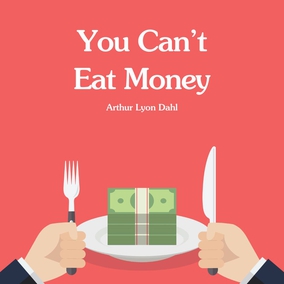The views expressed in our content reflect individual perspectives and do not represent the authoritative views of the Baha'i Faith.
Can the way you think harm you physically, make you ill, or even kill you? Increasingly, scientific research says yes.
In fact, science has long acknowledged a powerful mind-body connection, linking your emotional, mental, social, spiritual, and behavioral well-being to causes of physical illness.
Research has proven that psychological factors often play a major role in potentially fatal illnesses like heart disease—and that mind-body techniques such as meditation, yoga, relaxation and prayer can aid in their prevention and treatment. Anger, hostility and aggression have long been closely associated, for example, with severely increased risk for cardiovascular mortality. Those feelings of anger, hostility and aggression come about when our spiritual needs aren’t met—when we feel insufficient justice, kindness, caring and love from those around us, or from our society as a whole.
So if you feel angry or hostile, if you feel unloved or treated badly by others, you’ve likely developed some skepticism or even cynicism about the world and the people in it. That’s normal, and a healthy level of skepticism probably helps most people. But unfortunately, for some, it can lead to the adoption of a permanent, fixed emotional attitude of cynicism—the sarcastic denial of pure or wholesome motives in others, or even in yourself. Cynics often reach the point where they can no longer see any good in the world, and attribute every thought and action to self-serving greed or egotism.
The Baha’i teachings ask us to recognize and guard against such cynicism by becoming custodians of the forces of love:
The world is at present in an exceedingly dark condition spiritually; hatred and prejudice of every sort are literally tearing it to pieces. We, on the other hand, are the custodians of the opposite forces, the forces of love, of unity, of peace and integration, and we must continually be on our guard, whether as individuals or as a … Community, lest through us these destructive, negative forces enter into our midst. In other words, we must beware lest the darkness of society become reflected in our acts and attitudes, perhaps all unconsciously. Love for each other, the deep sense that we are a new organism, the dawn-breakers of a new World Order, must constantly animate our Baha’i lives, and we must pray to be protected from the contamination of society which is so diseased with prejudice. – Shoghi Effendi, Directives from the Guardian, p. 41.
If we are to avoid becoming entrammeled in the enervating coils of cynicism which are a characteristic of this age of transition, we must, as the “custodians of . . . the forces of love,” ground our efforts in indomitable faith. – The Universal House of Justice, letter to an individual Baha’i, April 1996.
What happens when those “enervating coils of cynicism” prevail? Well, in 2014 the medical journal Neurology reported a remarkable new mind-body discovery. Researchers found a strong link between a mental and spiritual attitude of “cynical distrust” and the likelihood of developing dementia in later life. If you consider yourself a cynic, you may want to examine these research findings and re-consider.
The scientists and physicians who conducted the study defined the term “cynical distrust” as an inner belief that other people are mainly motivated by selfish concerns. To determine each person’s beliefs, they used a psychological test called the Cook-Medley Hostility Scale to measure levels of cynicism. Testing 622 people over a period of eight years, 46 of the study subjects were ultimately diagnosed with dementia. The journal Neurology reported that:
Once researchers adjusted for other factors that could affect dementia risk, such as high blood pressure, high cholesterol and smoking, people with high levels of cynical distrust were three times more likely to develop dementia than people with low levels of cynicism. – Late-life cynical distrust, risk of incident dementia, and mortality in a population-based cohort
The study gives us some idea of the impact of cynical distrust on the human mind and soul—and it gives us a clear window into how our spiritual lives affect our physical lives.
From a spiritual perspective, then, how can we avoid or reverse a debilitating attitude of cynical distrust and suspicion? Baha’is believe that faith and action, even in the face of great adversity and cynicism, provide us with the ultimate antidotes:
We exhort mankind in these days when the countenance of Justice is soiled with dust, when the flames of unbelief are burning high and the robe of wisdom rent asunder, when tranquillity and faithfulness have ebbed away and trials and tribulations have waxed severe, when covenants are broken and ties are severed, when no man knoweth how to discern light and darkness or to distinguish guidance from error.
O peoples of the world! Forsake all evil, hold fast that which is good. Strive to be shining examples unto all mankind, and true reminders of the virtues of God amidst men. He that riseth to serve My Cause should manifest My wisdom, and bend every effort to banish ignorance from the earth. Be united in counsel, be one in thought. Let each morn be better than its eve and each morrow richer than its yesterday. Man’s merit lieth in service and virtue and not in the pageantry of wealth and riches. Take heed that your words be purged from idle fancies and worldly desires and your deeds be cleansed from craftiness and suspicion. Dissipate not the wealth of your precious lives in the pursuit of evil and corrupt affection, nor let your endeavours be spent in promoting your personal interest. Be generous in your days of plenty, and be patient in the hour of loss. – Baha’u’llah, Tablets of Baha’u’llah, pp. 137-138.
















Comments
Sign in or create an account
Continue with Googleor